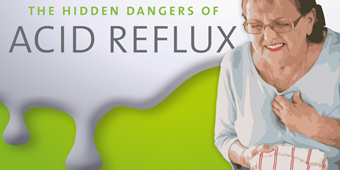Can Probiotics Help Your Gut?

Answer a few questions and we'll provide you with a list of primary care providers that best fit your needs.
You’ve probably heard about the digestive health benefits of probiotics which became popular about a decade ago. But you may not fully understand what they are.
Probiotics are live microorganisms that help maintain the growth of bacteria in your body. Although you may equate “bacteria” with something harmful, Quratulain (Annie) Aziz, MD, explains that “many bacteria are useful, too, like the ones that live in your gut and help with food digestion.” Probiotics also help destroy the source of harmful bacteria in your digestive tract, and in some instances they produce vitamins, she adds.
“It’s a balancing act that happens naturally in your body. When infection upsets your healthy community of bacteria, probiotics push the shift back to normal again.”
There’s some evidence that probiotics may be helpful in preventing digestive disorders such as diarrhea caused by infections, antibiotic-associated diarrhea, irritable bowel syndrome and inflammatory bowel disease.
Remarkably, some studies also show that probiotics may help with allergic disorders such as eczema and hay fever; tooth decay, periodontal disease, and other oral health problems; colic in infants (when a breastfeeding mother takes probiotics); and liver disease. Common side effects include gas and bloating.
Probiotics may be helpful in preventing digestive disorders such as diarrhea caused by infections, antibiotic-associated diarrhea, irritable bowel syndrome and inflammatory bowel disease.
Food and Drinks with Probiotics
You can get probiotics into your digestive system with the choices you make in food and drink:

- Soy drinks
- Yogurt
- Acidophilus milk
- Buttermilk
- Some soft cheeses such as Gouda
- Also in miso, tempeh, kefir, kimchi, and unpasteurized sauerkraut
Look for labels that identify "live active cultures" or that include the full name of the type or strain of bacteria on the nutritional label. Most of these are of the Lactobacillus and Bifidobacterium variety.
Supplements
Probiotics are also available as dietary supplements in capsules, tablets, powders and liquids. According to the National Institutes of Health, among adults, probiotics or prebiotics (a specialized plant fiber) are the third most commonly used dietary supplement.
Risks
But there’s a “but” to probiotics — there’s no strong scientific evidence to support specific uses of probiotics for health conditions. And because the U.S. Food and Drug Administration (FDA) doesn’t study products like probiotics, they have not been approved, nor are they regulated, by the FDA. This means that manufacturers of probiotic supplements don’t have to be precise. “Since they’re not regulated, we really don’t know for sure if the supplements are contaminated or not, and we don’t know the ratio of microorganisms in them,” says Dr. Aziz. For that reason, it’s possible that prolonged use of supplements could cause resistance to certain antibiotics, she adds.
Because medical studies have not shown probiotics to be harmful to healthy people, Dr. Aziz believes, “it’s very safe to give them a try.” Checking with your health care provider before taking probiotics is always a good idea, especially if you have health problems.
To learn more about probiotics, talk to your doctor or health care provider or search for a provider.
Answer a few questions and we'll provide you with a list of primary care providers that best fit your needs.
Source: Familydoctor.org; National Institutes of Health; Healthline; Quratulain (Annie) Aziz, MD.





